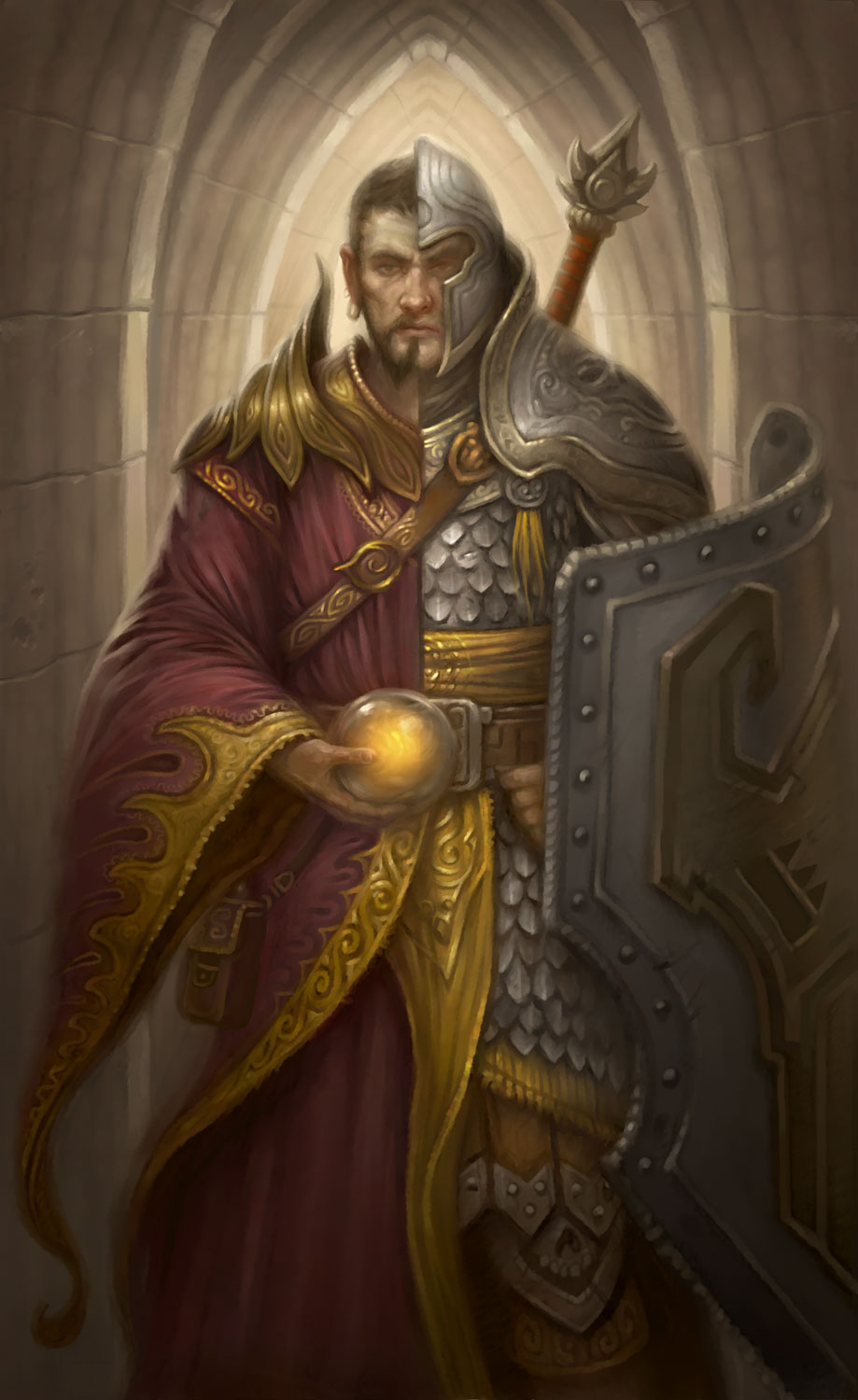Difference between revisions of "Multi-class Characters"
Tao alexis (talk | contribs) |
Tao alexis (talk | contribs) |
||
| Line 1: | Line 1: | ||
| − | [[File:Multi-class.jpg| | + | [[File:Multi-class.jpg|right|455px|thumb]] |
'''Multi-classed characters''' are characters possessing two or more [[Character Class|character classes]], thus acquiring more attack options and greater potential than single-classed characters. This is possible by slowing down the character's gaining of [[Experience Level|experience levels]], since all the experience of all classes must be acquired before the character can progress. | '''Multi-classed characters''' are characters possessing two or more [[Character Class|character classes]], thus acquiring more attack options and greater potential than single-classed characters. This is possible by slowing down the character's gaining of [[Experience Level|experience levels]], since all the experience of all classes must be acquired before the character can progress. | ||
Revision as of 19:10, 21 October 2021
Multi-classed characters are characters possessing two or more character classes, thus acquiring more attack options and greater potential than single-classed characters. This is possible by slowing down the character's gaining of experience levels, since all the experience of all classes must be acquired before the character can progress.
There are no limits as to which classes can be combined, although the ability stats of multiclassed characters must meet all minimum requirements from every class included. Moreover, the standards for multi-classed character primary attributes are higher.
- For example, a multi-classed cleric/fighter must have a minimum 15 strength and wisdom, well above the normal numbers required. These special requirements are listed under each class.
Gaining Experience
Multi-classed characters are not permitted a 10% bonus to their experience due to class.
For multi-classed characters, experience is not divided and awarded to different classes. The total experience (x.p.) requirement of all classes held by the character are added together, to create a single goal that must be reached in order to gain the character’s new level.
For example: a fighter-cleric wishes to be 2nd level. The fighter requires 2,001 x.p. The cleric requires 1,501 x.p. The base total for each class ~ 2,000 for the fighter and 1500 for the cleric ~ are added together and 1 is added. The fighter-cleric then becomes 2nd level at 3,501 x.p. The same character reaches 3rd level at 7,001 x.p., 4th level at 14,001 x.p. and so on.
Once the character goes up to the next level, the character gains all the abilities of each class possessed, at once.
Hit Points
Normally, a player character would start with the maximum number of hit points available for the hit die associated with that class (d10, d8, d6, etc.). With multi-classed characters, this number is averaged. A fighter-cleric (d10/d8) would have an average of 9 h.p. A fighter-thief (d10/d6) would have 8 h.p. A cleric-mage-monk (d8/d4/2d6) would likewise have 8 h.p. (24/3 = 8).
After this calculation, the character adds their constitution bonus and additional hit points from their body mass. The final total is the character’s starting hit points.
Upon gaining a level, all dice from all classes are rolled; fractions are ignored. Any 1 that is rolled on any die is re-rolled for a player character, but a non-player character does not receive this option. The result is then averaged and added to the player’s hit points.
Armour & Weapons
With regards to armour and proficiencies, multi-class characters must always submit to the most adverse armour limitations and the most beneficial weapon benefits. A fighter-thief, for example, would be limited to leather and padded armours and no shield, but would have the benefit of four proficiencies (and of any type a fighter would use). Likewise, a thief-mage could not wear armour, but would have two proficiencies, which would include choices from both classes.
With multi-classed monks, the monk’s natural armour class is always the default armour, regardless of what other classes are possessed.
The character gains proficiencies from all classes as they increase in level. A druid-assassin, therefore, would gain additional proficiencies at 5th, 6th, 9th, 11th and so on.
Further Notes
A character must remain multi-classed until reaching the third-level. Thereafter, if the player wishes, one or more of the character’s classes may be dropped, provided one class remains. If a class is dropped it cannot be picked up again; the character is considered to have reached the top of their capability in that class if the player chooses to drop it. The extra class may be dropped at any time; all experience above the last achieved level is divided and that experience that would have been assigned to a dropped class is discarded.
